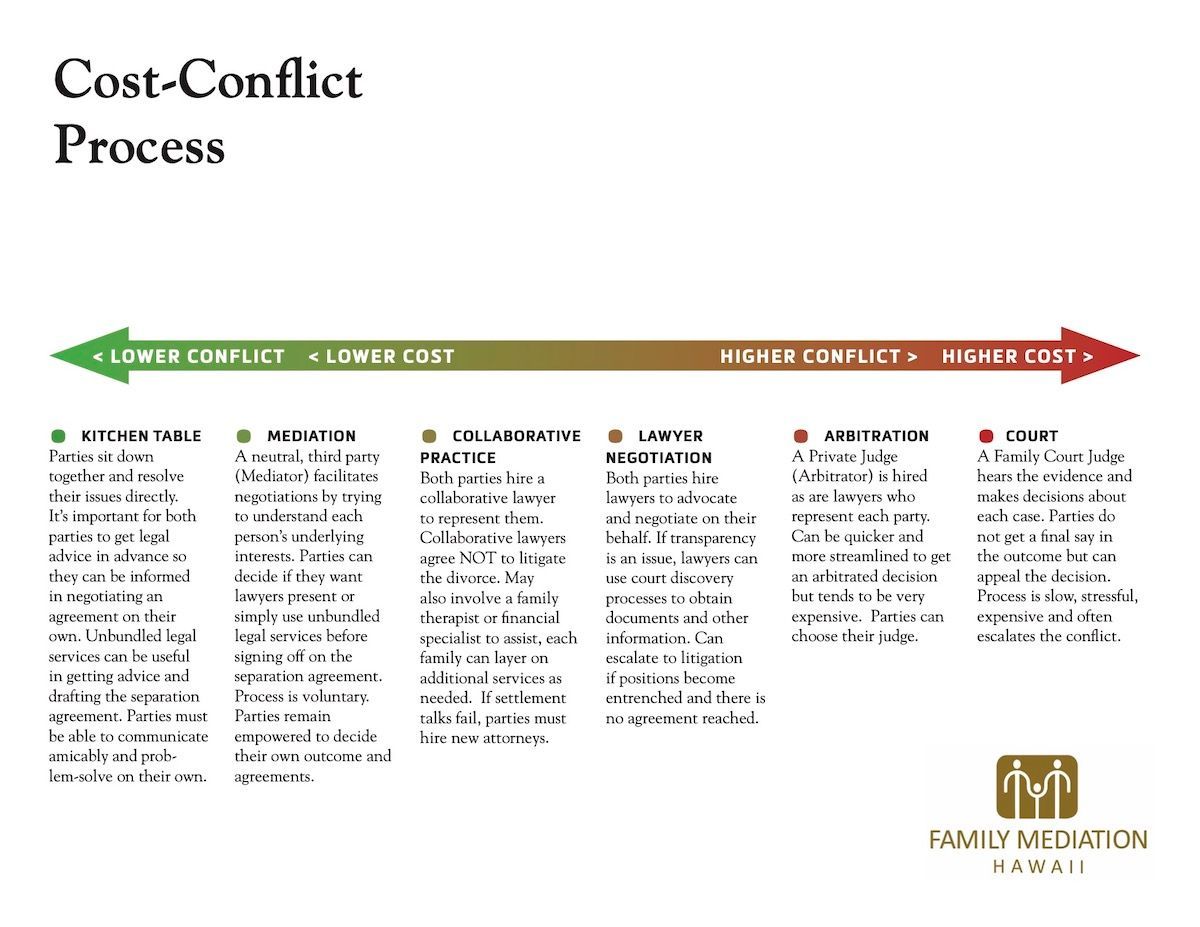How to Choose the Right Mediator for Your Dispute
Selecting a Mediator: Key Considerations for Success

If you're going through a divorce, child custody battle, or other legal dispute, mediation can be an excellent way to resolve the issues without the time, expense, and adversarial nature of litigation. But the success of mediation often comes down to having the right neutral third-party mediator guiding the process. Here are some tips on our to pick an effective mediator:
Get Referrals
Start by asking trusted friends, family members, attorneys, therapists or counselors if they can recommend any good mediators, especially those with experience handling cases similar to yours. You can also check listings from your local courthouse, the Hawaii State Bar Association, or professional mediation organizations.
Consider Their Background
Look for a mediator with formal training and certification in mediation techniques and processes. If it's a family law case, a mediator with a background in family law and family dynamics may be preferable. For other civil disputes, find someone with substantive knowledge of the legal issues involved.
Evaluate Their Style
Different mediators can have very different styles - some are more evaluative while others are purely facilitative. In your initial consultation, assess if their personal style is a good fit for you and your situation. If it's a high-conflict dispute, you may want a more assertive, reality-checking mediator.
Assess Their Credibility
A good mediator should have a track record of resolving cases without the parties having to go to court. You also want someone both parties can realistically trust and view as impartial.
Confirm Logistics
Make sure you understand all the logistics like where mediation will take place, if there are conference rooms, how costs are paid, and the mediator's policies around document sharing and confidentiality.
Value Persistence
Some cases don't fully resolve in the first session. A tenacious mediator who is willing to follow up extensively afterward with both parties can often eventually guide you to a settlement.
Above all, you want a mediator who makes both sides feel heard and comfortable engaging in honest, good-faith negotiations. With the right neutral third party asking insightful questions and keeping talks constructive, you're much more likely to hash out a resolution you can both live with.












